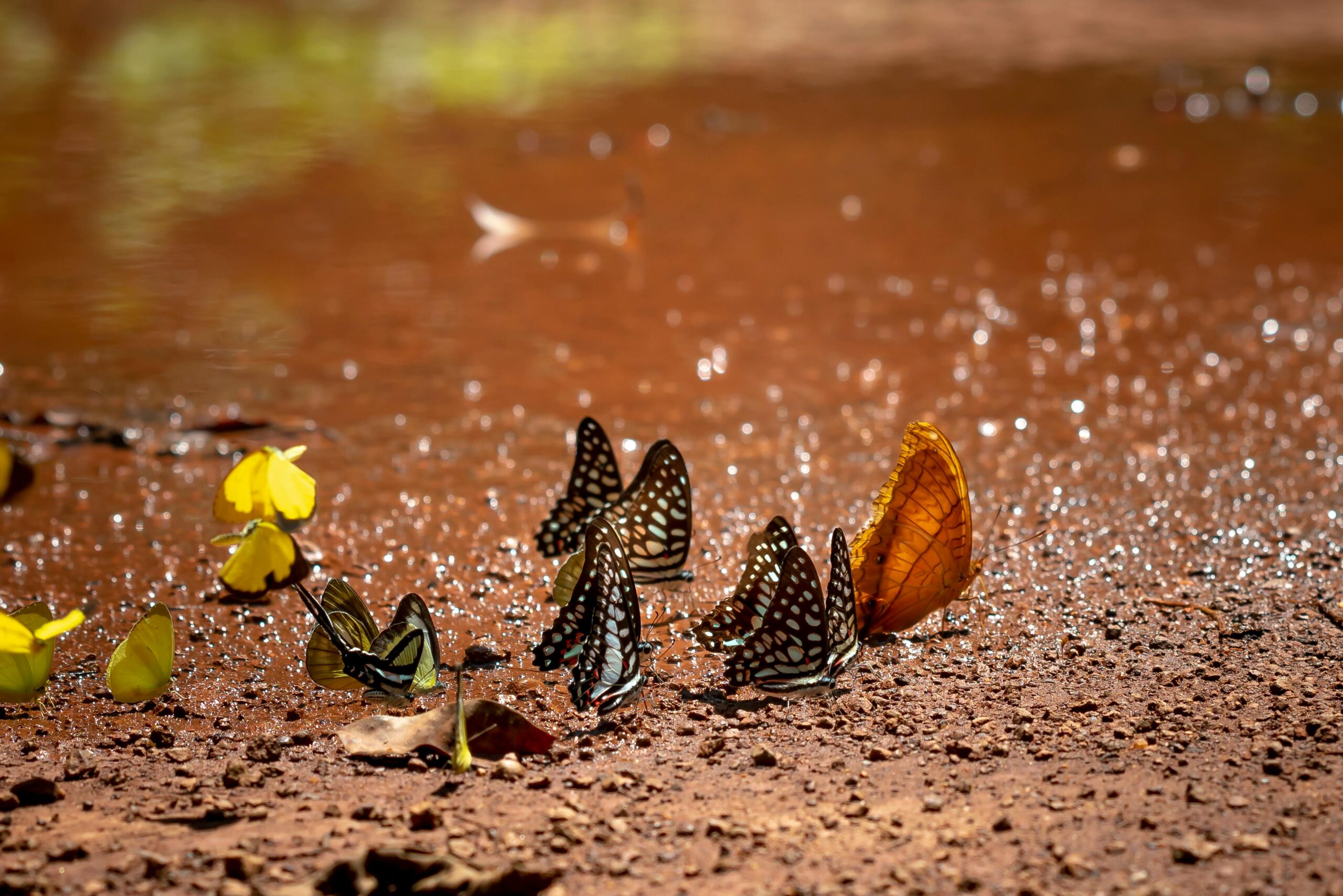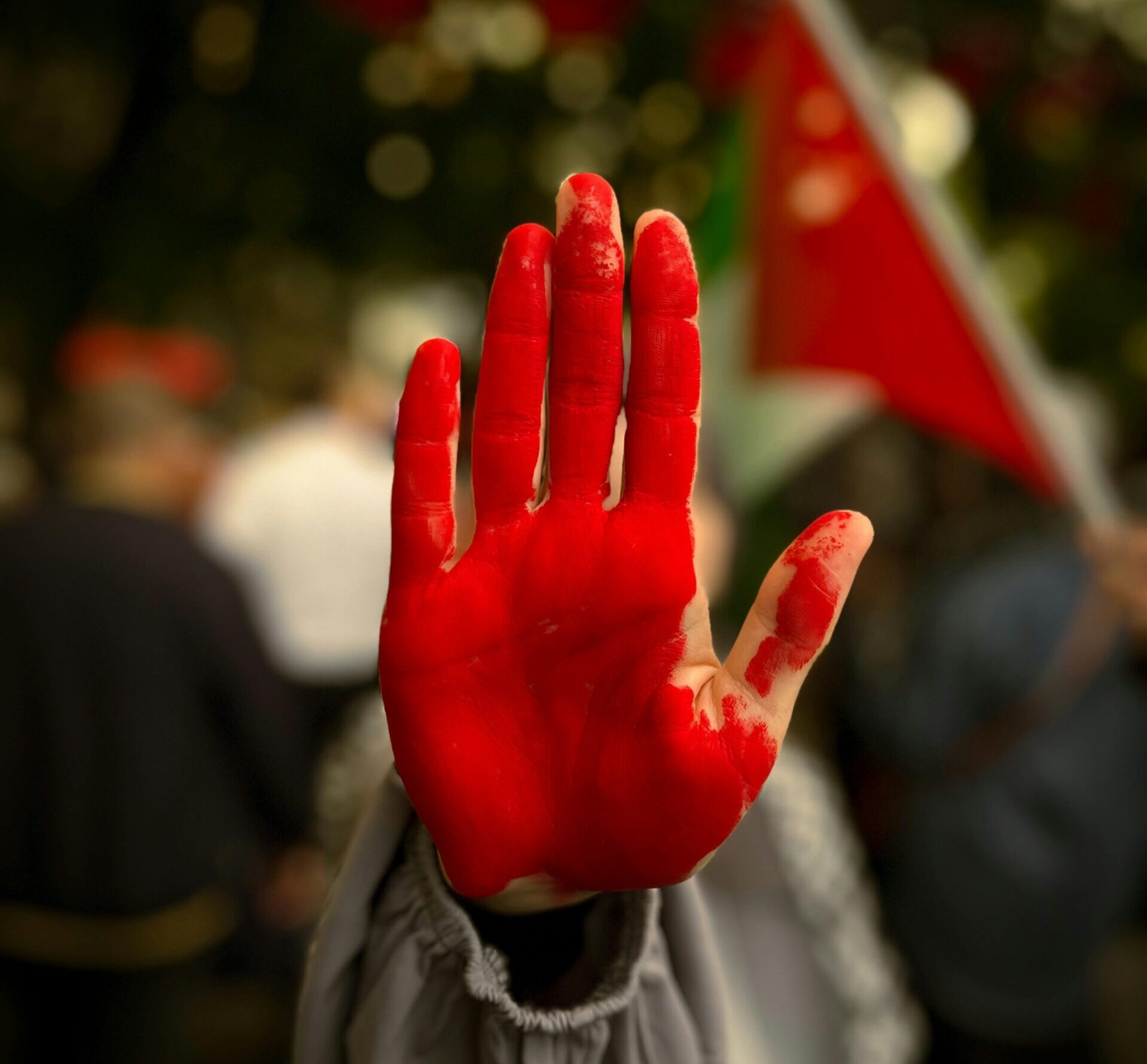The Inconvenience of Collective Care


Described as a ‘fierce cry to action,’ Discipline, the new novel by Randa Abdel-Fattah, takes place against the backdrop of Sydney in May 2021, during the final weeks of Ramadan as Israel’s bombardment of Gaza intensifies. With a focus on two of today’s most contested fields, academia and the media, the book questions the price we all pay when those with privilege choose to remain silent.
We were fortunate to have Randa — a Palestinian Egyptian Muslim academic, human rights advocate, award-winning author, former lawyer and mother of four children — take some time in the midst of her ongoing advocacy and activism work, to answer our questions about her experience writing Discipline, and the ways it is reflective of where we are at now as a society.
EQI: Congratulations on the release of Discipline. It’s a phenomenal book that feels very timely — though I imagine for Muslim and Arab readers it’s delving into subject-matter that’s tragically evergreen.
In your time writing Discipline you’ve been subjected to ongoing attacks from pro-Israel groups because of your advocacy for Palestine and Palestinian people — including outright threats, pressure on your publisher to cancel your book contract, lobbying for your dismissal from your workplace, a smear campaign that saw the suspension of your substantial research grant and, most recently, pressuring Bendigo Writers Festival to drop you as a speaker, which you and most other participants later withdrew from after being told to sign a code of conduct that would censor you from speaking about Palestine or criticising Israel.
So, that’s a lot. How are you? And how have you been supported through what is undoubtedly, on many fronts, a distressing time?
RANDA: Thank you for that question. I am as every Palestinian in the diaspora is: struggling with survivor’s guilt, focused on advocating and fighting for my people, constantly oscillating between grief and resilience, feeling simultaneously helpless and inspired. Whatever I’ve experienced in these past two years is a tiny sacrifice. I am more focused on holding people to account than I am invested in holding onto material success.
EQI: Does facing such intense scrutiny change your expectations for a book? How has the process for Discipline differed to the other books you’ve published?
RANDA: The process started in May 2021, was aborted in October 2023, and then resumed in 2024. In that sense I started writing a book before the genocide and then returned to continue it during the genocide, in circumstances where my life couldn’t catch up with my art. Surprisingly, the story and words poured out. There was no writers’ block, or moments where I doubted the story or my characters — not when events around me were screaming at me that this story needed to be told.
EQI: Discipline primarily follows two Sydney-based characters —academic Ashfar and journalist Hannah — during a period that includes a high school student’s arrest for protesting university ties to an Israeli weapons manufacturer, and the bombardment of Gaza by Israel. Can you share why you decided to set it in 2021, instead of post 7th October 2023 as I imagine many people would have expected?
RANDA: I started writing Discipline in late 2021, pulling inspiration and threads from my lived experience, research and activism. I wanted to explore the traces of state violence on Palestinians and Muslims in law, media, education and academia, pitting my characters against oppressive structures and systems. In 2021 we were witnessing the Unity Intifada, which reinforced relationships between the Palestinian diaspora and the Palestinians who remained in Palestine, as well as the attacks on Sheikh Jarrah that went viral at the time, culminating in Israel’s brutal bombing campaign on Gaza. It was the last big moment when we saw a demand in the media and academia for BDS, for truth-telling. Palestinians faced profound gaslighting at even using the words apartheid or settler colonialism. I wanted to therefore write a cautionary tale about the cost of silence and cowardice especially in public institutions and amongst people who often see themselves as ‘progressive’ and ‘leftist.’
“At a time of intense censorship and repression, the duty of artists to resist, raise the ceiling, and make defiant, subversive art, is greater.”
EQI: Throughout the book, you explore the risks of speaking out on behalf of community vs. the rewards of toeing the line for the sake of personal preservation. You’ve been at the forefront advocating for Palestine — as an academic, activist and writer — for many years. What, do you feel, is the role of art in speaking truth to power, and what is the cost of not doing so?
RANDA: At a time of intense censorship and repression, the duty of artists to resist, raise the ceiling, and make defiant, subversive art, is greater. Art that conforms to cultures of repression is not neutral. It becomes a tool for reinforcing the status quo, an instrument and extension of state power. The first consequence of making such ‘art’ is that it diminishes the artist. Artists who surrender their creativity, rebellion and independence might enjoy commercial success, but they expose themselves as state agents. It’s true that self-respect isn’t everybody’s priority! But then they cannot be surprised if they are treated as objects of ridicule and derision. I have no sympathy for artists who allow their art to be a means to launder state power in a time of genocide. Art is inherently rebellious in demanding people liberate themselves from all kinds of chains. That call is never so important in this time of live-streamed genocide.
EQI: Through your characters you explore the unending balancing act between personal and cultural identity and the reality of living in so-called Australia. There’s a line in the book, “Like placing a knee on an overpacked suitcase, she shoved her ‘identity politics’ back inside her, held it all down and forced the zip to close.”
For your characters, and for Arab communities in general, what is the consequence of forcing the zip closed? What do we lose as a society when we expect those from diverse communities to contain themselves in this way?
RANDA: Forcing the zip closed stems from a demand to ignore the relationship between here and there in a nation established and sustained by empire. The idea that ‘Australians should not import political tensions of foreign conflicts,’ is being popularised by state and federal politics at the moment. Claims about ‘identity politics’ are a way of disavowing the inherently political nature of our lives as racialised peoples, as peoples in the ‘diaspora of empire’ as Nadine Naber says. It is profoundly arrogant to expect communities that are here because empire was (and remains) there to ignore the violence that not only brought them here but continues in their homelands. I wanted to illuminate the violence of demanding that people demarcate global systems and structures from the banal, quotidian spaces of their everyday lives and workplaces. Gaza has exposed it all now. That what we eat, drink, play and work with, invest in, consume — it’s all implicated in a military-industrial-surveillance-technology industry that is right now sponsoring genocide. Through Ashraf and Hannah’s stories — even Nabil, the student arrested, who is inspired to protest after visiting the Palestinian refugee camp in Lebanon, Ein Hilweh — I wanted to show the entanglement between my racialised characters’ personal lives and the political forces that work against us all.
“This is about wholesale change and revolution so that art and academia are liberated from the military-industrial-surveillance-technology industry.”
EQI: There’s a moment in the book where, in response to her mother’s concern for her wellbeing, Hannah says, “Being affected by what’s happening is looking after myself! Grief is love. At least my heart is alive. It’s the people who don’t feel a thing that you should worry about.”
Can you speak to this idea that grief is love? How does that hold for you, when you’re constantly needing to show up with strength and resilience?
RANDA: Grief is love because it is the body’s way of marking its investment and care in the lives of others, of kith and kin. It doesn’t necessarily paralyse you. In fact, it can move you to action. In honour of those you are grieving, in honour of life-worlds that have been destroyed and are about to be destroyed. Because the genocide is ongoing, grief isn’t in the past, it’s not mourning what has happened because it’s still happening. And so it kind of propels us to keep fighting.
EQI: You obviously have extensive experience across both the academic and arts sectors — how do we confront the moral failings of institutions that promote free speech and independent thought, yet are complicit in their silence, and often funded by Zionists? What does a reimagining of these systems look like, for you?
RANDA: We confront them by exposing them. Academia and the mainstream arts have largely revealed themselves as slaves to capitalist forces. Their lofty motherhood statements and purported values and ideals have all been exposed as empty rhetorical marketing projects. As soon as speech, knowledge production and art threatened Zionist feelings (and donors), we saw the weaponisation of DEI against racialized academics and artists and communities, we saw colonisers and settlers step out of the shadows and expose the power they hold within and over these institutions. A reimagining of these systems is tied to reimagining how our entire societies are organised. This is not a movement of incremental reform in an otherwise rotten system. This is about wholesale change and revolution so that art and academia are liberated from the military-industrial-surveillance-technology industry.
EQI: When hope feels impossible in the face of inaction and complicity from the leaders who govern, where do we look to find it?
RANDA: In each other. In the street, in people power, in children and young people who distil truth with raw honesty, but ultimately, in Gaza, where for over 700 days, Palestinians, defenceless and alone, have faced off every abomination Israel and its western sponsors has rained down on them, and yet remain defiant.
EQI: Your publisher at UQP is the indominable Aviva Tuffield, and your beautiful cover art is by brilliant artist and writer Amani Haydar. Can you share how the collaborative process was for this book?
RANDA: It was a joy. Aviva was a safe space and therefore creativity and feedback was nourished. Amani needs no instructions. I gave her full license because I trust her completely and, as expected, she delivered and surpassed my expectations.
EQI: And finally, because we are Equality Institute, when you imagine a more equal world, what do you see?
RANDA: A free Palestine from the river to the sea. If we can achieve that, we would have taken down global systems of inequality. Because all roads lead to Gaza in this moment.
The land we live and work on always was, and always will be, Aboriginal land. We pay our respects to the Traditional Custodians of Country throughout Australia and acknowledge the ongoing leadership role of Aboriginal & Torres Strait Islander communities in preventing violence against women. We also acknowledge Traditional Custodians of the lands where EQI works around the world.
Read MoreYou have been logged out.
"*" indicates required fields